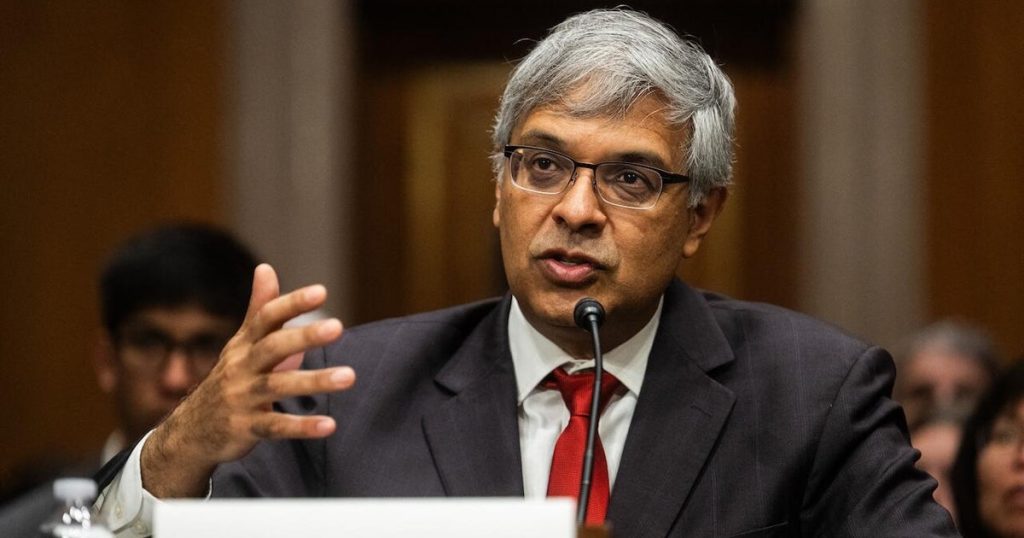The head of the National Institutes of Health now says it could take until next year to get preliminary results from their new studies into autism, marking the latest delay to findings that Health and Human Services Secretary Robert F. Kennedy Jr. had promised by September.
“We’re going to get hopefully grants out the door by the end of the summer,” NIH Director Dr. Jay Bhattacharya told reporters Tuesday. “And people will get to work. We’ll have a major conference, with updates, within the next year.”
Bhattacharya said it should still be considered “a very rapid study by NIH’s normal standards,” saying that the institute was working to “cut the red tape without cutting the rigor” in launching their new research grants.
“It’s hard to guarantee when science will make an advance. It depends on, you know, nature has its say,” Bhattacharya said.
Kennedy earlier this month pledged that “by September, we will know what has caused the autism epidemic, and we’ll be able to eliminate those exposures.”
In an April 15 statement released by his department, Kennedy said “we expect to begin to have answers by September.”
“I would like to have a timeline within a year, where they start to put out the preliminary results or the results. We’ll see. It’s hard to predict how long scientists – you know, nature has its say in how long the results take,” Bhattacharya said.
He said he did not think there had been a miscommunication behind Kennedy’s September promise, saying Kennedy was simply “enthusiastic to get the scientific process going.”
“He’s accurately communicating that we want to get moving on this as rapidly as we can,” Bhattacharya said.
Researchers getting the awards would be selected through the NIH’s “normal process” of reviewing proposals from outside scientists, he said. Every institute at the NIH will be involved in the autism project.
Bhattacharya said they were still discussing exactly how much money to devote to the autism research effort, which he previously said would likely give out awards to between 10 to 20 groups. The sum is “on the order of tens of millions of dollars,” he said.
He also sought to address privacy concerns over the medical records that the NIH is amassing for the autism research project, which he said was at the “forefront of my mind.”
“The identifiers will be hidden from the researchers themselves. There will be systems in place where they can’t pull down the data and look at any individual patient. They’ll be looking at statistical aggregates,” he said.
Asked if Kennedy would have any say in who gets chosen to get access to the records and grant funding, he said it would be the agency’s peer reviewers making the picks.
“Secretary Kennedy has not ever, in my experience, put his thumb on the scale in that way. And nor do I intend to do that,” Bhattacharya said.
Advocacy groups have criticized Kennedy’s new push to study autism’s causes, with the nonprofit Autistic Self Advocacy Network pointing to “decades of time and billions of dollars that have already been spent on research to identify the causes of autism,” instead of what it says should be funding going towards supporting people with autism.


